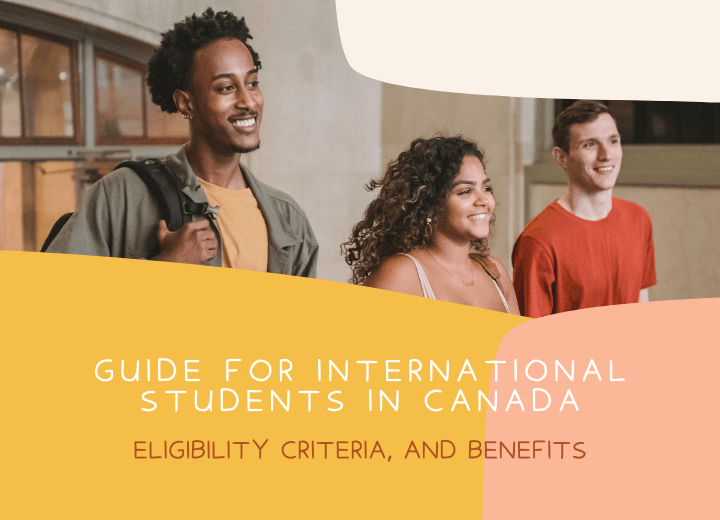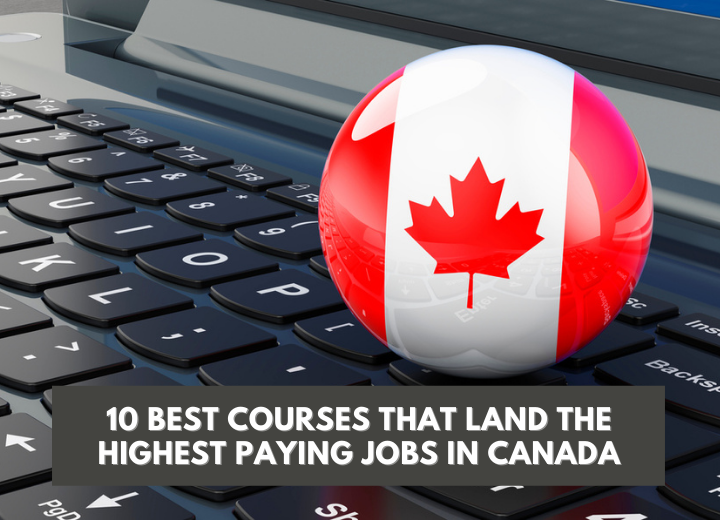Do you plan to study at Canada’s diverse and academically renowned institution in 2024? You are, however, not alone! With its world-class universities and multicultural society, Canada is known worldwide as an exceptional country for pursuing higher education. It provides notable prospects for academic achievement, cultural exploration, and a high standard of living. As a student in Canada, you will have the privilege of engaging in both ground breaking research and practical learning experiences. The University of Toronto, McGill University, and the University of British Columbia are just a few examples of the best universities in Canada. With our expert tips and strategies, this blog can guide you to increase your chances of study in Canada in 2024.
Select a Reputable College or University
Choosing a reputed university or college in Canada for your post-graduation programme is paramount for many compelling reasons. Canada has several top-notch universities and colleges with over 1500 Designated Learning Institutions (DLIs). While a letter of approval from a DLI is mandatory to apply for a student permit in Canada, there are other factors to consider besides being on the authorized list. Generally, the better the institution you pick, the greater your chances are of getting a study visa. Thorough research is required to determine the reputation of your selected college. Furthermore, you should also look at whether the university/college is popular for your course or not and the size of the department. It is better to compare the courses at your desired school with comparable courses available at other DLIs to determine whether your school is a good option for your planned degree.
Pick a Course Based on Your Past Academic Work and Career
When deciding to study in Canada, selecting a subject closely linked to your previous academic background or that matches your job objectives is best. This strategy can greatly improve your educational experience and future prospects. The officer reviewing your student visa application will assess whether the projected course is adding any benefit to your career or not. Therefore, if the programme is entirely unrelated to your past experiences, the immigration officer is likely to have reservations about the relevance of your study.
The programme you choose does not have to be in the same field as your previous occupation, but it should have some links. If you already have a bachelor’s degree in business administration and job experience in a human resources department, applying for a master’s in HR management will be a smart decision. Suppose there is no link between your preferred programme and your previous degree of education or work experience; in that case, it is important to show how your experiences have led to your decision to pursue the desired course.
Think About How the Subjects Will Support Your Career Goals
The program’s link to your background is not the only important factor for a successful study permit application. It is equally important to have a connection between your course and your career objective for the future. You must convince the visa officers about the correlation between your desired course and your career objectives. Doing so will exemplify your genuine interest in the subjects you plan to study and reassure the officer about your intention to return home after completing your education. It is important to keep in mind that a study permit only allows you to stay in Canada until the period of your course is complete.
To validate your decision to study in Canada, it is important to justify how a similar programme in your home country fails to offer comparable employment opportunities. This will increase your chances of study in Canada in 2024. To achieve this, we recommend providing concrete examples in your application highlighting the disparity between your career objectives with a Canadian qualification and those without one.
Hold a Job at the Time of Application Submission
Being employed while submitting your application to study in Canada can showcase your financial stability. Several international students depend on part-time jobs while pursuing post-graduation in Canada. Having a job during the application process can imply that you have a stable source of income, making you a more desirable candidate for immigration authorities. This is because it may lessen the requirement for substantial financial assistance.
-
Organise Your Study Time Well
In order to enhance your chances of study in Canada, it is important to have a compelling study plan along with your application. Within this document, you can elaborate on the mentioned aspects while showcasing your commitment to returning to your home country upon completing your course. Additionally, you can attach extra details and relevant supporting documents to strengthen your application further.
-
Consult a Canadian Immigration Specialist Lawyer
Increasing your chances of getting a study permit application can be achieved by following these 5 steps. It is crucial to keep in mind that there is no foolproof immigration process, and your application may always be turned down. Sometimes, this can be the result of an IRCC mistake. Still, more commonly, it is because the assessing officer was unconvinced of your intentions, influenced by various factors.
If your study permit application is rejected, you can re-apply, request a reconsideration, or even go for a juristic review. However, the chances of your application getting selected diminish with each subsequent rejection of a study permit or visa to Canada. Hence, it is really important to try and get it right the first time! If you have any concerns regarding the strength of your application, you can schedule a consultation with one of the Canadian immigration lawyers. They will address your concerns and discuss how they can support you throughout the student permit process in Canada with the help of their personalised lawyer-to-client collaboration.
Conclusion
From choosing a credible university and programme to providing a personal statement and accountability for funding your education, pursuing the dream of study in Canada in 2024 will be a worthwhile experience. Adopting the right approach can increase your chances of study in Canada. Renowned for its world-class universities and multicultural society, Canada is an exceptional destination for higher education. This blog serves as your compass, providing expert tips and strategies to enhance your chances of study in Canada in 2024.
Frequently Asked Questions (FAQs)
What is the success rate for a Canada study visa in 2024?
the success rate for Canadian student visa applications is expected to remain reasonably high.
What will immigration levels be in 2024 Canada?
With a target of 485,000 new immigrants, Canada's immigration numbers will stay constant in 2024.
How many hours can a student work in Canada in 2024?
A student can work up to 20 hours per week off-campus in Canada in 2024.
Is a 1 year PG diploma worth it in Canada?
Completing a one-year postgraduate diploma programme in Canada enhances the students' employment prospects. Getting a PG Diploma from Canada ensures domestic job opportunities and opens doors internationally.
Can I apply for PR after 1 year PG diploma in Canada?
Getting a one-year diploma in Canada and then aiming for a work permit based on a full-time job offer is recommended. Once you join the company, you can apply to the Canadian PR programme.








